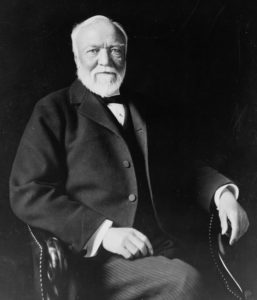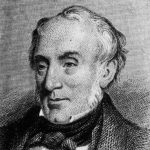Andrew Carnegie: From The Wealthiest Man In The World to The Father Of Modern Philanthropy
To rise from humble beginnings to becoming a billionaire is truly inspirational, and this is what Andrew Carnegie’s story is. Be
Looking for Andrew Carnegie’s quotes? Then you are at the right place, I have for you 60 Andrew Carnegie quotes in picture and text format for you to indulge in. However, before we delve in, it would only be right to get some facts about Andrew Carnegie.
When was Andrew Carnegie born and how did he end up in America?
Andrew Carnegie was born in Dunfermline, Scotland, on November 25, 1835. His family were poor and at the age of 13, his family moved from Scotland to the United States in search of a better life. They settled in Allegheny, Pennsylvania. The very first job that he got was in a cotton mill that afforded him $1.20 per week.
How did Carnegie become involved in the Steel industry?
It was not long enough that his talents were soon acknowledged when he was promoted to bookkeeping. Andrew was a bookworm, spending his time during Saturday in the wealthy citizens’ homes, which allowed him to have access to their libraries. Later on, he became a telegrapher, and because he was so good at his job, promotion was inevitable. He became the personal secretary of the head of a railroad company, where he learned a lot about the rail industry. It is this knowledge that would enable Carnegie to become the steel tycoon we remember him today.
Carnegie made his fortune by investing in iron and oil companies. His investments paid off and at the age of 57, he founded the Carnegie Steel Company. 9 years later, Carnegie sold his company J.P. Morgan who then merged his company to form the well-known U.S. Steel. The sale of Carnegie Steel Company made Carnegie US$480 million (14.8 billion- 2019 figures).
How much did Andrew Carnegie make?
Carnegie sold his company, Carnegie Steel for US$480 million (14.8 billion- 2019 figures)
Andrew Carnegie net worth?
Carnegie’s net worth was US$475 million, but by the time of his death in 1919, he had donated most of his wealth to charities and other philanthropic endeavors and had only US$30 million left to his personal fortune.
How Andrew Carnegie helped build America?
A question that is asked often. It was Carnegie’s revolutionary methods and use of technology that manufactured the raw materials for the railroads in the United States. With Carnegie’s steel and with the availability of railroads, America was able to become a key player in the Industrial Revolution.
When did Andrew Carnegie die?
Andrew Carnegie died on August 11, 1919, aged 84 years.
Andrew Carnegie the Philanthropist
His retirement did not stop him from being a public figure of inspiration. Before he died, he was able to donate more than $350 million to various public foundations. The hardships of not having access to books when he was younger became his driving force to build 3,000 libraries. Some of the most notable contributions he made were the Carnegie Hall in New York and Carnegie-Mellon University.
Andrew Carnegie books?
Right here, I have all these facts about Andrew Carnegie plus some picture quotes that you can pin!
During the Gilded Age, oil was not the only commodity that was needed. Steel is also at part with its demand.
There were a lot of uses steel during that time—even up until today. It is used for cars and rails, a new naval fleet, and the construction of skyscrapers. Every factory all around America needed steel for its machinery and physical plant. The demand for steel paved the road for Andrew Carnegie to set foot toward success.
He wasn’t born rich, and
But it was not long enough that his talents were soon acknowledged when he was promoted to bookkeeping. Andrew was a bookworm, spending his time during Saturday in the wealthy citizens’ homes, which allowed him to have access to their libraries. Later on, he became a telegrapher and became the personal secretary of the head of a railroad company.
During the Civil War, Andrew spent his time assisting soldiers, especially the wounded ones, going to the hospitals. It was by then that he was able to accumulate some money that he invested. He has grown interested in steel and iron with its enormous demand that paved the foundation for the largest steel company in the world.
His canny business tactics made him a great tycoon. If Rockefeller utilized the “horizontal integration,” Carnegie, on the other hand, was banking on the “vertical combination.” This was a process of buying iron mines and railroad companies. He already anticipated that if he owned the mines and the rails, he would be able to bring down the cost of producing steel. In addition, Carnegie valued the productivity of his workers. To do this, he launched a profit-sharing plan for the employees to grow a vested interest in the prosperity of his company.
All of these things became the pillars of success for Carnegie Steel Company to become a multimillion-dollar corporation. It was in 1901 that he sold to J.P. Morgan his interests. Morgan paid him $500M that gave birth to U.S. Steel.
His retirement did not stop him from being a public figure of inspiration. Before he died, he was able to donate more than $350 million to various public foundations. The hardships of not having access to books when he was younger became his driving force to build 3,000 libraries. Some of the most notable contributions he made were the Carnegie Hall in New York and Carnegie-Mellon University.
Besides, Andrew Carnegie became a staunch advocate for world peace. Despite all these, he was tagged as a “robber baron” for not increasing the wages of his workers. Instead, he invested more in foundations, as he believed that they could last forever and for generations to come. Yet his contributions will always be associated with the world-power statues that the United States is enjoying today.
Here are some nuggets of wisdom that came from Andrew Carnegie:
“Success can be attained in any branch of human labor. There is always room at the top in every pursuit. Concentrate all your thought and energy upon the performance of your duties.” Andrew Carnegie
“You cannot push anyone up the ladder unless he is willing to climb.” Andrew Carnegie
“Do your duty and a little more and the future will take care of itself.” Andrew Carnegie
“Teamwork is the ability to work together toward a common vision. It is the fuel that allows common people to attain uncommon results.” Andrew Carnegie





















